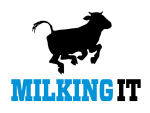Open Country Dairy is telling farmer suppliers that demand from China will pick up from January.
It expects Chinese consumers to start buying more dairy products, despite the economy moving into full gear.
The Talley's-owned milk processor has announced a final payout of $7.37/kgMS for milk supplied between February and May this year. Suppliers will be paid this month.
Open Country pays its milk suppliers in full four times during the season and chief executive Mark de Lautour describes the May payment period as a good result.
"While at the lower end of our forecast range, it is a good result considering the softening market conditions the industry has been facing," he says.
De Lautour notes that the last Global Dairy Trade (GDT) event was a shocker.
The overall price index dropped 4.3% with flagship whole milk powder prices slumping by 8%.
Open Country do not sell on GDT. However, most contracts are indexed in some way to the GDT results, noted de Lautour.
"The addition of volume onto GDT during a time when few bidders are active is creating a supply-demand imbalance on the platform," he says.
The gloomy GDT result was followed by Fonterra reducing its milk forecast price range midpoint by $1/kgMS.
De Lautour believes this has sent a worrying signal that low market pricing may be with us for a bit longer.
But he says Open Country still sees global demand improving, particularly from China, from January 2024.
"This is consistent with what we have been communicating at our supplier meetings.
"However, the upturn will now be from a lower base following the recent GDT reduction."
Open Country is still forecasting a higher milk price than Fonterra's $7 mid-point for the rest of the year. For milk supplied between June and September, Open Country is forecasting a milk price range between $7.25 and $7.55. For milk supplied in October and November it has a forecast range of $7.30 to $7.70.
De Lautour says they don't believe that a significant turnaround in the Chinese economy is required to improve their purchasing behaviour.
However, he admits that the economic performance from China remains well below expectation, and some serious stimulus is required. "We are now seeing different perspectives from milk processors for the coming season and their respective views on milk price.
"While we can never guarantee our predictions are right, we continue to present what we see in front of us, operate very conservatively, efficiently and do not have excess unsold inventory."
De Lautour says this season will be "extremely tough" and urges farmers to manage their running costs and capital spend diligently.
"Cash is king and I trust our payment model will provide you with a working capital/overdraft advantage during these tougher times."


















